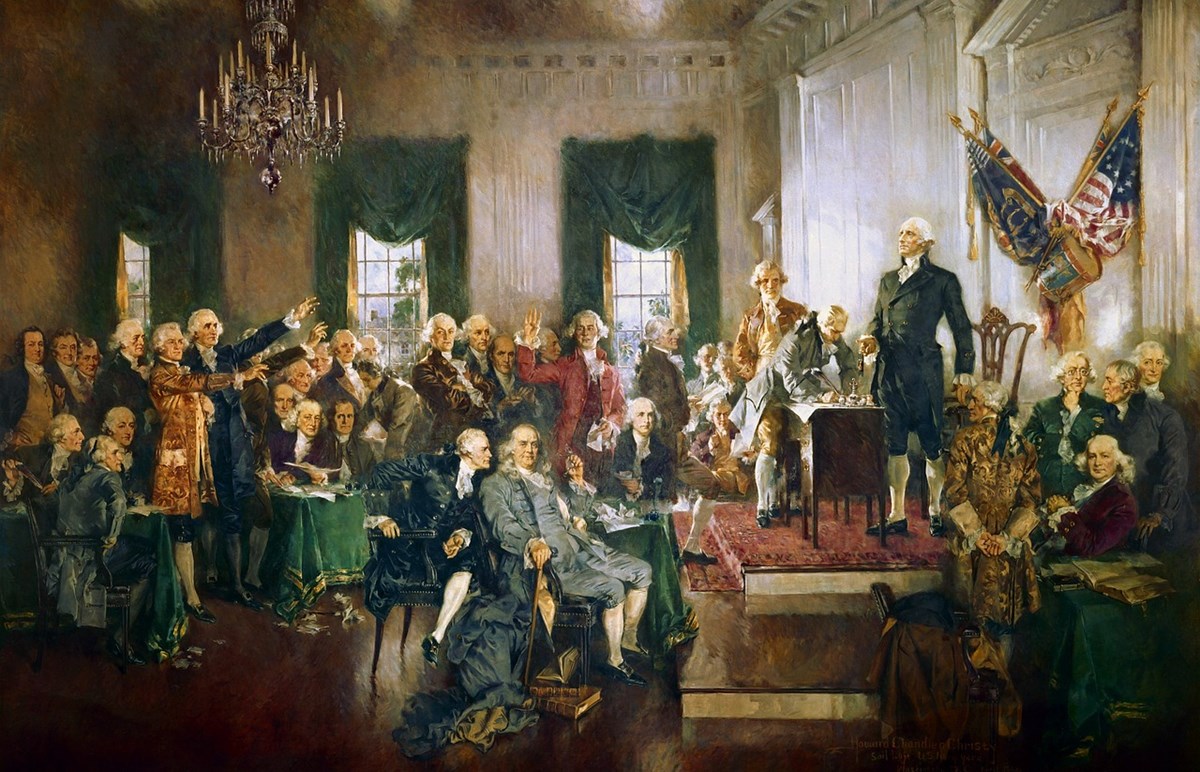We live in a time where standards and norms are easily broken or dismissed. Everything has become “unprecedented,” and every news story is a “bombshell.” The average bystander is likely to view these events as a circus or merely political theater, while insiders understand the situations to be of far greater importance for their particular agenda. Whether or not these decisions are thoroughly planned is up for debate, but one thing is certain: short-term politics creates unintended long-term consequences.
The Rise of Politicization and Partisanship
Politics is a far older instrument of power and control than the United States Constitution or the United States of America, itself. The struggle for power and control is as old as mankind, but Western civilization has functioned exceptionally well largely because of an established set of standards and principles. Every so often, a politician is determined to upend the status quo. In 2008, Barack Obama became the first African-American man elected to the presidency of the United States. In 2016, Donald J. Trump became the first business mogul and reality television star elected to the presidency. Both individuals’ elections prompted mass hysteria and cognitive dissonance. Both political parties promised resistance from Day One. Senator Mitch McConnell famously said of President Obama, “the single most important thing we want to achieve is for President Obama to be a one-term president.” President Obama responded, “And it’s not going to be enough just to play politics. You can’t just focus on the next election. You’ve got to focus on the next generation.” If only President Obama’s actions mirrored his rhetoric.
While both sides seek to duke it out over “their truth,” the long-term consequences of abandoning basic principles of due process and innocent until proven guilty will lead us further into tribalism.
Judge Brett Kavanaugh’s confirmation hearing brought to light the foundational legal principle of innocent until proven guilty. In the binary American political system, one side is pitted against the other. One side is deemed misogynist or having white male privilege, while the other is deemed totalitarian for having put aside such a foundational legal standard. Despite the semblance of truth in both arguments, each side instead further entrenches itself in their own argument. Outside criticism is seen as treasonous and subject to the mob. While both sides seek to duke it out over “their truth,” the long-term consequences of abandoning basic principles of due process and innocent until proven guilty will lead us further into tribalism. The weaponization of basic ideals can be turned on a dime on the opposing side. These principles came about in order to protect us from our tribal instincts, which have become increasingly more visible as social media becomes a central part of our daily lives.
Such instincts may lead our politicians to act with the short-term in mind rather than realize the long-term consequences of their actions. One such example is the former Senate rule that required 60 votes to overcome a filibuster of an executive nominee. The Senate’s “Advice and Consent” role is critical to the integrity of our constitutional republic. In our partisan times, the majority party found it incredibly difficult to affirmatively vote on nominees without a filibuster. Judge Brett Kavanaugh rightly called out members of the Senate Judiciary Committee for replacing “Advice and Consent” with “Search and Destroy” as an alternative to the filibuster option. Judge Kavanaugh has been alleged to have committed sexual assault and various other public indecencies despite an absence of corroborating evidence.
In 2013, Senator Harry Reid scrapped the 60-vote rule in favor of the “nuclear option.” Back in 2013, “Republicans cried foul, despite threatening the nuclear option in the past, and Democrats who had been opposed to such a rule change quickly changed their tune,” CBS noted. “You’ll regret this, and you may regret this a lot sooner than you think,” then-Senate Minority Leader Mitch McConnell said in response to Reid’s move. Fast forward to 2018, and the long-term implications of Senator Reid’s actions are now decried by Senate Democrats, now the minority party. The 60-vote threshold to overcome a filibuster now seems as if it was quite valuable to the political process. It was not merely a partisan tool to obstruct the majority party’s whims but a crucial measure to require strenuous debate over the qualifications of an executive nominee.
Weaponizing the Executive Branch
Passing executive branch nominees along purely party lines is not against any congressional rules, but it is problematic for the long-term viability of our institutions. The politicization of our administrative agencies is nothing new, but a prolonged weaponization of the executive agencies may lead us toward “presidential administration, as presidents seek to use agencies to advance partisan policy agendas stymied by congressional stalemate,” a 2015 paper published in the Columbia Law Review observed. Legislation passed along pure party lines may dissuade moderates from aligning with an explicit partisan agenda. This may lead to the ultimate failure of legislation to pass, leading the president to utilize his/her partisan executive nominee “as presidential surrogates and fair partisan game.”
The long-term implications of extreme partisanship are not limited to only heated rhetoric as it flows over into short-term politics. Political leaders may see it in their interest to expand executive power beyond constitutional norms, creating a de facto executive dictatorship.
The long-term implications of extreme partisanship are not limited to only heated rhetoric as it flows over into short-term politics. Political leaders may see it in their interest to expand executive power beyond constitutional norms, creating a de facto executive dictatorship. Since President Trump’s inauguration, voters have consistently been told that they elected a fascist despite zero introspection. Many of President Trump’s policy prerogatives were built on the back of President Bush’s unconstitutional expansion of executive war power and President Obama’s manipulative use of executive orders. President Trump understood the political landscape to favor executive unilateralism, which he has demonstrated a liking for, especially given a highly dysfunctional Congress. The result of our political leaders’ short-term calculus is the unrelenting growth of an administrative government led by the president.
The natural progression of a decaying system is the continuous crumbling of its institutional structure. Until constitutional conservatives mobilize en masse to repair the crumbling constitutional framework of our republic, this death spiral will surely continue. As Senator Ben Sasse correctly noted during the Supreme Court nomination hearings, “The solution is not to try to find judges who will be policymakers. The solution is not to try to turn the Supreme Court into an election battle for TV. The solution is to restore a proper constitutional order with the balance of powers...We need a Congress that writes laws and then stands before the people and suffers the consequences.” As Megan McArdle writes at The Washington Post, “few in Congress seem interested in doing that kind of work. Until that changes, we’ll be stuck with third-rate television dramas like these Senate confirmation hearings.”

